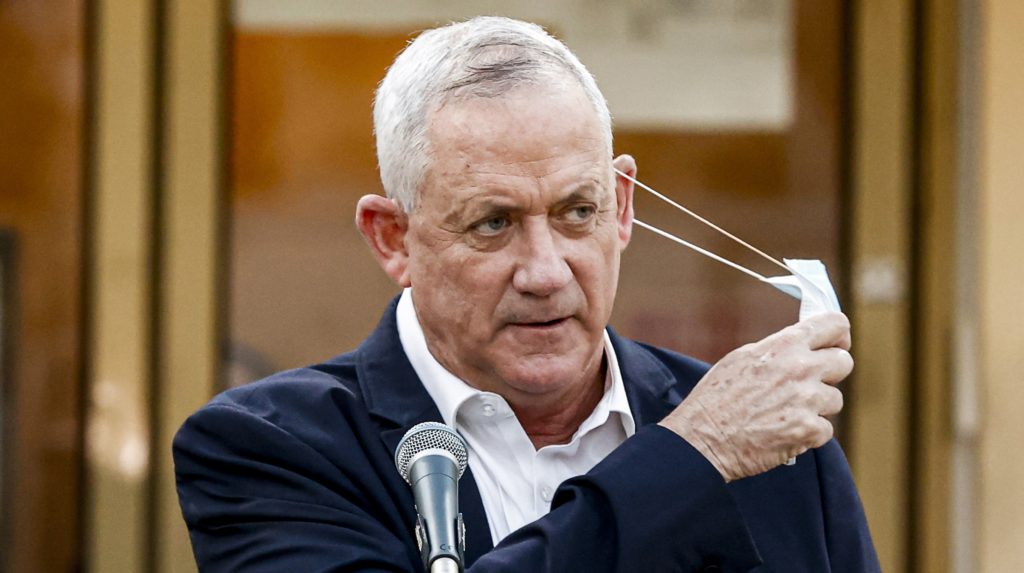Australia/Israel Review
Biden and the case for Israeli elections
Dec 17, 2020 | Jonathan Tobin

This isn’t what Israelis want to hear right now, but they need to hold another election. The prospect of a new administration in Washington is cause for concern, even if it may not prove to be the end of the world. But the challenge that the new administration will pose requires Jerusalem to speak with one voice.
An Israeli government with the prime minister’s office at odds with both the defence and foreign ministries is a luxury the Jewish state might have been able to afford as long as President Donald Trump was in the White House, and the US-Israel relationship was one rooted in close cooperation and a common vision about strategic issues. But with President-elect Joe Biden about to take office with a foreign-policy team committed to many of the Middle East policies of the Obama administration, Israel’s margin for error is about to be reduced.
Even if that means that Israelis must suffer through the agony of a fourth election inside of two years, a divorce between unity government partners Prime Minister Binyamin Netanyahu and Defence Minister Benny Gantz has become a necessity.
After having held three inconclusive elections inside of a year, yet another trip to the ballot box would seem to be the last thing the Jewish state needs. In April and September of 2019, and then again in March of this year, Israelis headed to the polls to elect a Knesset. Each time resulted in a stalemate with neither Netanyahu nor his chief rival – Blue and White Party leader Gantz – able to muster a majority.
The standoff finally ended in April of this year, when Gantz split his party by joining a unity government with Netanyahu. Doing so made no political sense for him since the only point of Blue and White was to topple the prime minister rather than to enact different policies. But realising the futility of the continued stalemate and responding patriotically to the crisis that the coronavirus pandemic presented to the nation, he decided that throwing in with his nemesis was the right thing to do.
Many in his own party denounced him as a traitor and a fool. The terms of the deal he cut with Netanyahu not only brought the rump of Blue and White who stuck with him an outsized share of government posts, it also offered him a pathway to the prime ministership since it called for the two to switch jobs in 18 months. Yet few at the time thought Netanyahu would stick to that deal, and nothing that has happened in the eight months since then has changed anyone’s mind about that.
Netanyahu is a political mastermind, and his ability to outmanoeuvre and undermine Gantz – a former chief of staff of the Israeli Defence Forces who is still a novice in his new profession – at every turn has made the conduct of the country’s government a dismal spectacle. Though the tall, handsome and personable Gantz seems like a political consultant’s dream candidate, his inability to keep up with Netanyahu has made the power struggle within the cabinet something of a mismatch. And with the Prime Minister personally managing the country’s key responsibilities – the relationship with Trump and Israel’s new Gulf state allies, as well as its defence strategy – Gantz’s frustration at being boxed out by the Prime Minister at every turn has been painfully obvious to all.
As long as Washington was prepared to follow Netanyahu’s lead, and largely ignore Gantz and his Blue and White colleague Foreign Minister Gabi Ashkenazi, this farce had no impact on anything other than the two ex-generals’ egos.
But with US foreign policy about to be put in the hands of Obama administration alumni, Israel’s divided Cabinet is about to be transformed from a cruel comedy at Gantz’s expense into a distinct political liability for the country.
A Biden administration will not be content, as Trump’s was, to let communications between the two governments be managed through the friendly conduit of Israeli Ambassador to the United States Ron Dermer, who reports directly to Netanyahu. Biden and Secretary of State-designate Antony Blinken may not be about to seek the same “daylight” that President Obama tried to create between the two countries. But their differences with the Israeli consensus on the impossibility of peace with the Palestinians and the need to confront, rather than appease, Iran are bound to create trouble.
The stakes involved in properly managing relations with Biden and avoiding the kinds of conflict that happened under Obama are too high for Israel to continue with a dysfunctional coalition.
Holding an election during a pandemic, or even one held while the arrival of a vaccine may be starting the process of ending the crisis, won’t be easy.
No matter what choice Israelis make, they’ll be better off with a government not at war with itself. Whether it is led by Netanyahu or someone else, the end of the Trump era in Washington should also mean the end of Israel’s latest unhappy experiment in “unity”.
Jonathan S. Tobin is editor-in-chief of JNS – the Jewish News Syndicate. © JNS.org, reprinted by permission, all rights reserved.
Tags: Benjamin Netanyahu, Benny Gantz, Israel, United States






